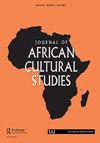非洲的中国研究
IF 0.7
2区 社会学
Q2 CULTURAL STUDIES
引用次数: 1
摘要
近年来,随着非中关系的发展,越来越多的非洲学术机构开始提供中国研究的培训和研究,以满足当地对中国专业知识的新需求。本文从立场的角度来看待非洲对中国的研究。它断言,在当今相互关联的全球化世界中,这一新兴领域以动态的人类流动以及学科和地理边界的变化为强烈标志。虽然非洲裔中国学者的背景和观点的多样性正在丰富,但他们所产生的关于中国的知识应该嵌入当地环境中,并与当地环境对话。这对于非洲的中国研究能够满足当地对加强非洲机构与中国关系的期望非常重要。过去二十年来,非洲与中国日益发展的关系,推动了对中国本土专业知识的需求。越来越多的非洲学术机构参与了有关中国,特别是非中关系的知识的生产和传播。诚然,就其规模和受到的关注而言,这些举措被非洲学术界其他一些与中国有关的发展所掩盖,比如成千上万的非洲人正在中国接受学术培训,或者通过非洲大陆的孔子学院学习普通话。尽管如此,非洲关于中国的跨学科学术专业知识的发展开辟了一个重要的“学术界的新前沿”(Iwata 2014106)。正如斯特伦博斯大学中国研究中心主任Ross Anthony(2018)(2014-2018)所断言的那样,这可以成为一个重要的催化剂,使非洲国家和非洲人民在与中国日益增长的互动中做出更明智的选择。这篇文章从立场的角度审视了非洲的中国研究领域。它将这一新兴领域及其从业者置于个人、地方、区域和区域间期望、兴趣和观点的生动景观中。考虑到这些不同的动态,非洲关于中国的学术如何产生嵌入其独特的当地背景并与之对话的知识?本文章由计算机程序翻译,如有差异,请以英文原文为准。
China Studies in Africa
In recent years, and as a result of growing Africa-China relations, a small but increasing number of African academic institutions have begun to offer training and conduct research in China Studies to meet new demands for local expertise on China. This paper looks at African scholarship on China through the lens of positionality. It asserts that this emerging field is strongly marked by the dynamic human mobility and shifting boundaries of disciplines and geographies of today’s interconnected globalized world. While the diversity in backgrounds and perspectives among African China scholars is enriching, the knowledge on China they produce should be embedded in and speak to local contexts. This is important for China Studies in Africa to be able to meet local expectations of strengthening African agency in relations with China. Africa’s growing relations with China over the past two decades have boosted demands for local expertise on China. A small but growing number of African academic institutions have become engaged in the production and dissemination of knowledge on China and Africa–China relations in particular. Admittedly, in terms of their scale and the attention they receive, these initiatives are overshadowed by some of the other China-related developments in the African academic landscape, such as the tens of thousands of Africans who are pursuing academic training in China or who study Mandarin Chinese through Confucius Institutes across the continent. Nonetheless, the development of African interdisciplinary academic expertise on China opens up a significant “new frontier in the academic world” (Iwata 2014, 106). As Ross Anthony (2018), who was the Director of the Centre for Chinese Studies at Stellenbosch University (2014–18), asserted, this can be an important catalyst to enable African countries and African people to make more informed choices in their growing interactions with China. This contribution looks at the field of China Studies in Africa through the lens of positionality. It situates this emerging field and its practitioners in a vivid landscape of personal, local, regional and interregional expectations, interests and perspectives. Considering these various dynamics, how can African scholarship on China generate knowledge that is embedded in and speaks to its unique local context?
求助全文
通过发布文献求助,成功后即可免费获取论文全文。
去求助
来源期刊

Journal of African Cultural Studies
Multiple-
CiteScore
1.70
自引率
10.00%
发文量
13
期刊介绍:
The Journal of African Cultural Studies publishes leading scholarship on African culture from inside and outside Africa, with a special commitment to Africa-based authors and to African languages. Our editorial policy encourages an interdisciplinary approach, involving humanities, including environmental humanities. The journal focuses on dimensions of African culture, performance arts, visual arts, music, cinema, the role of the media, the relationship between culture and power, as well as issues within such fields as popular culture in Africa, sociolinguistic topics of cultural interest, and culture and gender. We welcome in particular articles that show evidence of understanding life on the ground, and that demonstrate local knowledge and linguistic competence. We do not publish articles that offer mostly textual analyses of cultural products like novels and films, nor articles that are mostly historical or those based primarily on secondary (such as digital and library) sources. The journal has evolved from the journal African Languages and Cultures, founded in 1988 in the Department of the Languages and Cultures of Africa at the School of Oriental and African Studies, London. From 2019, it is published in association with the International African Institute, London. Journal of African Cultural Studies publishes original research articles. The journal also publishes an occasional Contemporary Conversations section, in which authors respond to current issues. The section has included reviews, interviews and invited response or position papers. We welcome proposals for future Contemporary Conversations themes.
 求助内容:
求助内容: 应助结果提醒方式:
应助结果提醒方式:


